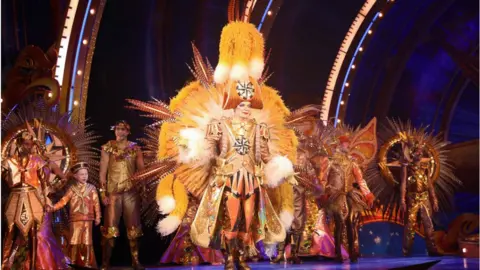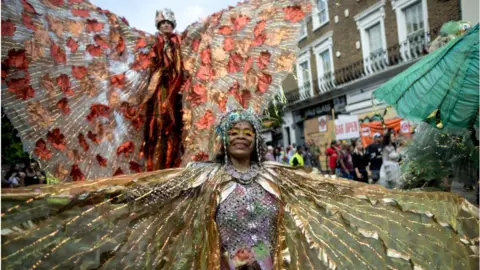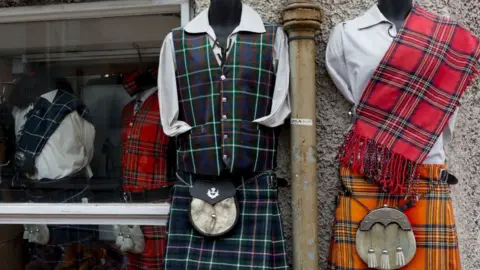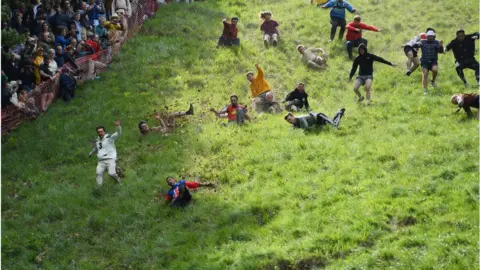Pantomime and carol singing proposed for Unesco cultural status
 Getty Images
Getty ImagesBritish Christmas traditions, such as pantomime, carol singing and wreath-making could receive protected status.
It comes as the government confirms it will ratify the 2003 Unesco Convention for Safeguarding Intangible Cultural Heritage.
Traditions already recognised across the world include the Argentinian tango and Belgium beer culture.
The system protects crafts, practices and traditions which give people a sense of identity across the world.
 Getty Images
Getty ImagesChinese shadow puppetry, Italian dry stone walling and Croatian gingerbread crafting also make up some of the protected status list.
British arts and skills could also receive protected status, such as sea shanties and calligraphy.
Landmarks across the UK such as the Tower of London, Fountain's Abbey and Giant's Causeway already have Unesco world heritage protection.
Earlier this year, York city centre, Birkenhead Park and an iron age settlement in Shetland were put forward by the government to join the prestigious list.
The UK currently has 33 protected sites.
 Getty Images
Getty ImagesMembers of the public will be consulted from Saturday on what values and traditions should be celebrated and how the adjudication process should work for deciding which of those nominated values is chosen.
The Department for Culture, Media and Sport (DCMS) says they will work with the devolved nations to make sure that all territories feel represented in the nomination process.
They will then present the nominations to parliament before officially ratifying the convention with Unesco in the spring of 2024.
Those wishing to take part will be able to nominate celebratory days such as Hogmanay, Burns Night, Shrove Tuesday and the Welsh tradition of Eisteddfodau.
Traditions up for consideration could include Highland dancing, bagpipe playing, cheese-rolling and Welsh valley male voice choirs.
 Getty Images
Getty ImagesOther traditions which have been brought to the UK by immigrant communities such as Notting Hill Carnival and steel-drumming could also be proposed.
And crafts can be up for consideration, such as basket-weaving, thatching and the art of creating tartan and tweed.
Practices such as these are being considered because of the way that they have been inherited from our ancestors and passed on through generations.
The arts and heritage minister, Lord Parkinson said: "The UK is rich in traditions which are passed down from generation to generation", adding that these "customs have helped to shape our communities".
